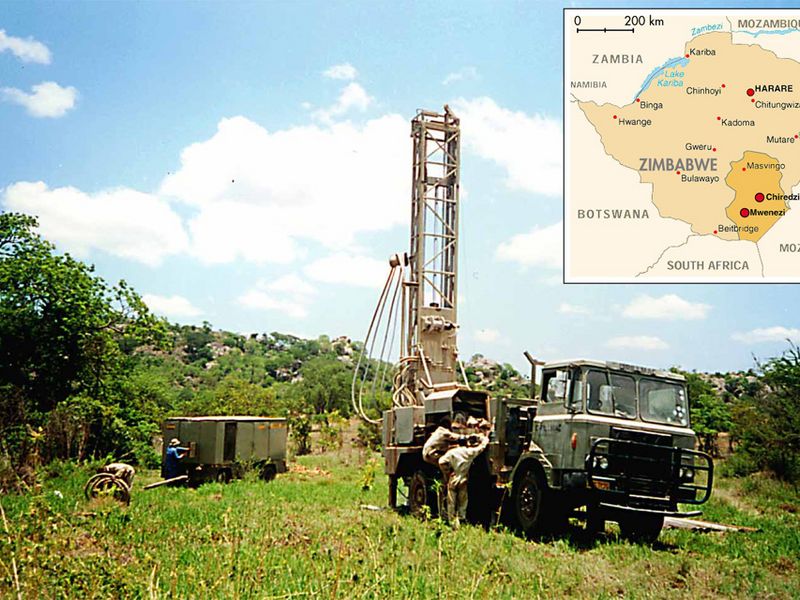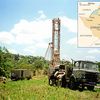Masvingo Province:Rural Water Supply in Mwenezi and Chiredzi Districts
Disziplinen
-
GIS – Geographical Information Systems
-
Wasserbau
-
Water Supply
Gesellschaften
Dorsch International Consultants
Auftraggeber
Ministry of Local Government and National Housing, Harare National Action Committee
Dauer
Von 1994 bis 2001Projektleistungen
Phase (I):
- A hydrogeological survey including photogeology and geophysics.
- The installation of 400 new boreholes with handpumps and headworks.
- The mechanical rehabilitation of 450 handpumps.
- The upgrading of 300 existing boreholes (hydrofracturing, flushing and headworks).
- The installation of 150 deep wells.
- The upgrading and deepening of 250 shallow wells.
- The construction of 7,600 Blair latrine units for private households.
Phase (II):
- A detailed hydrogeological survey using satellite images, aerial photography and geoelectrics.
- The installation of 210 new boreholes.
- The mechanical rehabilitation of 150 handpumps.
- The upgrading of 130 boreholes.
- The construction of 20 new deep wells.
- The deepening and upgrading of 180 shallow wells.
- The construction of 1,500 Blair latrine units.
- Intensive training in community-based maintenance while supplying necessary tools, and the execution of hygiene education campaigns.
Kontakt
Dorsch International Consultants GmbH
München (Headquarters)
80687 München
Germany
Tel.: +49 89 5797-0
Fax: +49 89 5797-800
E-Mail: info@dorsch.de
Beschreibung
This integrated project was financed under loan-plus-grant aid from the German development bank KfW, and included components throughout the original project time (Phase I) and the extension period (Phase II) that focused on supplying universal, equitable and affordable safe water and sanitation for all which in turn improved the health conditions and reduced illnesses related to water-borne and water washed diseases. The project also contributed in strengthening the participation of local communities in improving water and sanitation management through training local personnel in simple sanitary techniques and establishing an operation and maintenance programme which included community-based maintenance to ensure the correct functioning of all the installations.
The project also contributed in increasing the availability of high-quality, timely and reliable data.

